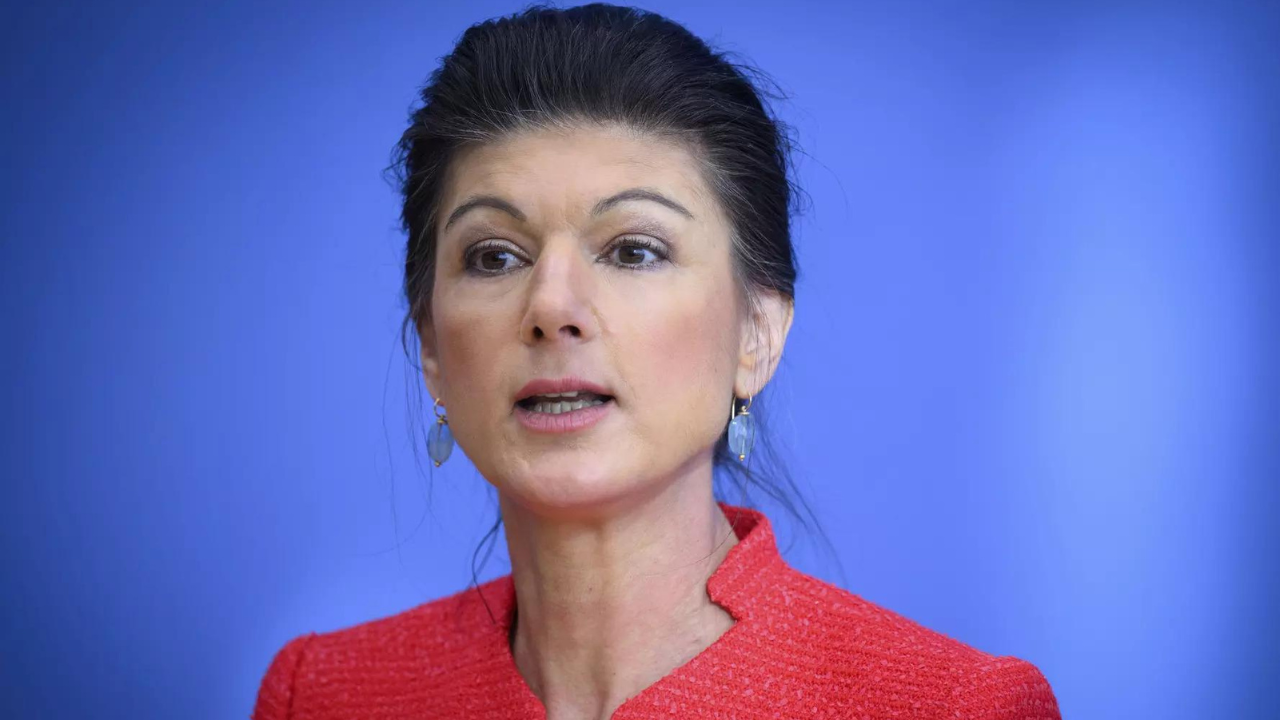BERLIN: An icon of Germany’s far left launched her own party on Monday, promising to rescue democracy in the European Union’s largest economy from the threat posed by voters deserting traditional centrist parties for the far right.
Sahra Wagenknecht, a former leader of the Left party, said she would inspire disillusioned voters with measures such as reversing unpopular environmental initiatives, ending weapons deliveries to Ukraine, cutting immigration, and improving state-provided services like education and pensions.
“To my great regret, you no longer find in the German party spectrum a party that seriously advocates for these issues: good pay, solid pensions, a strong social state,” she told reporters when introducing her top team.
In Ukraine, it is time to end the war by negotiating, she said. Wagenknecht added, incorrectly, that even Ukraine’s generals now say its battle against Russia’s invasion cannot be won.
In November, Kyiv’s commander-in-chief was reported as saying Ukraine needed more advanced weapons to break out of a “stalemate” in the war, but no Ukrainian general has been heard saying the war cannot be won.
After a 15-year boom, Germany’s economy has been in the doldrums since the pandemic, with the shift to a green economy and Russia’s war in Ukraine compounding a mood of disenchantment that has cost both Chancellor Olaf Scholz’s three-way coalition and the conservative opposition in the polls.
The conservatives, on around 30%, are on twice the level of Scholz’s Social Democrats and his Green allies, but that is still historically low for a party that until recently commanded almost half of all votes cast.
As Wagenknecht spoke, Berlin was filled with farmers protesting over cuts to their subsidies that the coalition blames on a court ruling that torpedoed its budget planning – among many headwinds buffeting Berlin’s government quarter.
“You’re experiencing a government that has no plan other than taking ever more money out of pockets and … a chancellor who seems speechless even when he goes on and on,” she said.
Wagenknecht is not the only person to have spotted room for a new party. Last week Hans-Georg Maassen, a former domestic security official popular with anti-immigration voters, also said he would launch a new party.
“Wagenknecht is a danger for virtually all the parties except for the Greens,” Hermann Blinkert of pollster INSA said of the prospects for her new grouping, which will be named Sahra Wagenknecht Alliance – Reason and Justice (BSW).
While some of her positions, especially on migration and Ukraine, share ground with the Alternative for Germany (AfD), which is on up to 23% in polls, Wagenknecht said she would not be open to members joining directly from the far-right AfD – though she would be open to their voters.
With no responsibility other than to campaign, her party is in an easy position for now.
The BSW’s first outing will be in June’s European Parliament elections, where its lead candidate will be Thomas Geisel, a former mayor of Duesseldorf, who said the BSW better expounded the Social Democrat values he had espoused as a member of Scholz’s party until four weeks ago.
Sahra Wagenknecht, a former leader of the Left party, said she would inspire disillusioned voters with measures such as reversing unpopular environmental initiatives, ending weapons deliveries to Ukraine, cutting immigration, and improving state-provided services like education and pensions.
“To my great regret, you no longer find in the German party spectrum a party that seriously advocates for these issues: good pay, solid pensions, a strong social state,” she told reporters when introducing her top team.
In Ukraine, it is time to end the war by negotiating, she said. Wagenknecht added, incorrectly, that even Ukraine’s generals now say its battle against Russia’s invasion cannot be won.
In November, Kyiv’s commander-in-chief was reported as saying Ukraine needed more advanced weapons to break out of a “stalemate” in the war, but no Ukrainian general has been heard saying the war cannot be won.
After a 15-year boom, Germany’s economy has been in the doldrums since the pandemic, with the shift to a green economy and Russia’s war in Ukraine compounding a mood of disenchantment that has cost both Chancellor Olaf Scholz’s three-way coalition and the conservative opposition in the polls.
The conservatives, on around 30%, are on twice the level of Scholz’s Social Democrats and his Green allies, but that is still historically low for a party that until recently commanded almost half of all votes cast.
As Wagenknecht spoke, Berlin was filled with farmers protesting over cuts to their subsidies that the coalition blames on a court ruling that torpedoed its budget planning – among many headwinds buffeting Berlin’s government quarter.
“You’re experiencing a government that has no plan other than taking ever more money out of pockets and … a chancellor who seems speechless even when he goes on and on,” she said.
Wagenknecht is not the only person to have spotted room for a new party. Last week Hans-Georg Maassen, a former domestic security official popular with anti-immigration voters, also said he would launch a new party.
“Wagenknecht is a danger for virtually all the parties except for the Greens,” Hermann Blinkert of pollster INSA said of the prospects for her new grouping, which will be named Sahra Wagenknecht Alliance – Reason and Justice (BSW).
While some of her positions, especially on migration and Ukraine, share ground with the Alternative for Germany (AfD), which is on up to 23% in polls, Wagenknecht said she would not be open to members joining directly from the far-right AfD – though she would be open to their voters.
With no responsibility other than to campaign, her party is in an easy position for now.
The BSW’s first outing will be in June’s European Parliament elections, where its lead candidate will be Thomas Geisel, a former mayor of Duesseldorf, who said the BSW better expounded the Social Democrat values he had espoused as a member of Scholz’s party until four weeks ago.

